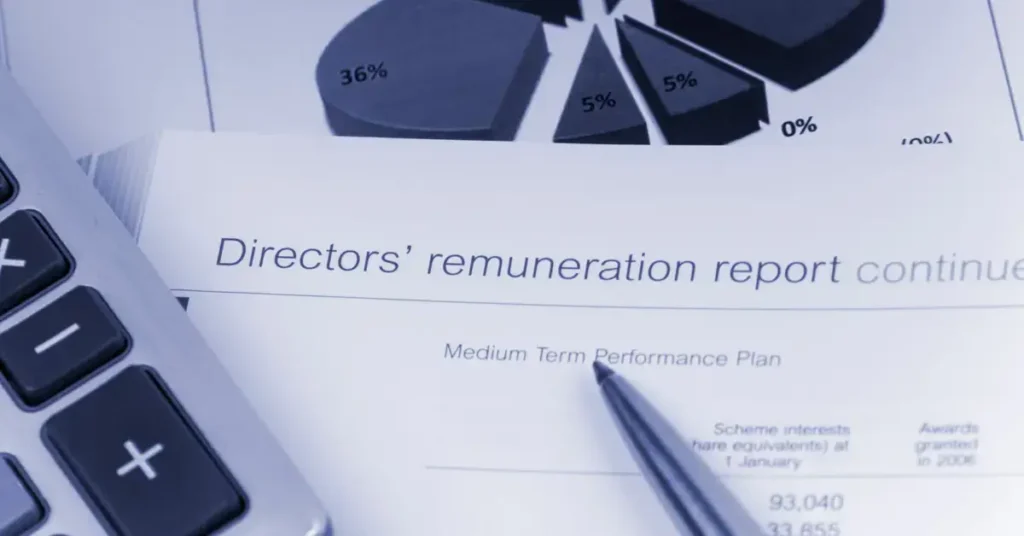Finance director jobs are key to any organization’s success, blending financial expertise with strategic leadership. These roles involve a wide array of tasks, from shaping financial strategies to overseeing budgets and economic forecasting. The essence of being a finance director lies in safeguarding and improving a company’s financial health, demanding both technical skills and executive oversight. This dynamic field requires adaptability and a commitment to continuous learning to keep pace with evolving financial landscapes, making it both a challenging and rewarding career path.
The Finance Director Job – Overview of Finance Director Roles
In exploring finance director jobs, I’ve noted that the role is strategic and requires a deep understanding of financial management. Here’s what you need to know:
Key Responsibilities
- Financial Oversight: Ensuring the company’s financial health by developing strategies, performing risk analysis, and managing all aspects of the financial department. This often includes overseeing all financial activities, such as reporting on revenue, budgeting, and distributing funds.
- Strategic Planning: Aligning financial strategy with business goals, which entails significant involvement in decision-making to steer company growth and stability.
Education Requirements
- Bachelor’s Degree: A minimum requirement, usually in finance, accounting, or a related field.
- Advanced Degrees: Many directors of finance hold a master’s degree, MBA, or even a PhD, demonstrating a higher level of expertise and commitment to the field.
Skills and Qualities
- Communication Skills: Essential for conveying complex financial concepts to stakeholders and guiding teams with clarity.
- Analytical Skills: Critical in evaluating company finances and market trends to make informed strategic decisions.
- Attention to Detail: This trait ensures accuracy in financial reporting, which is foundational to the trust placed in a finance director.
- Problem-Solving: A key quality that empowers a finance director to tackle financial challenges effectively and innovatively.
Employment Types
- Full-time Roles: Generally, finance directors are employed in permanent, full-time positions, which provide stability for both the individual and the organization.
- Consultancy: Some directors may work on a consultancy basis, offering strategic advice to companies on a project-by-project basis.
Working in Finance

When I think about finance director jobs, I see them as key leadership roles that require a strategic mindset and a comprehensive grasp of financial management. These positions often demand a high level of expertise and the ability to oversee complex financial operations. Let me walk you through the structure and growth opportunities within this field.
The Finance Team
In my experience, the finance team typically consists of individuals at various levels, from entry-level associates to mid-senior-level managers. Associates are frequently involved in data analysis and supporting the creation of financial plans. Everyone on the team needs to contribute to the overall financial health of the organization.
- Entry-Level: Usually focused on data entry, collection, and preliminary analysis.
- Mid-Level: Often responsible for formulating department budgets and forecasts.
- Senior-Level: Engages in strategic planning and may supervise other finance team members.
Career Progression
The journey toward becoming a finance director often starts at an entry-level position within the finance department. Gaining experience and demonstrating a solid understanding of financial concepts can set a foundation for progression. At the mid-senior level, one might manage specific areas of finance, laying the groundwork to eventually step into a finance director role.
- Steps to Progression:
- Gain experience in finance through various roles.
- Demonstrate strong performance and leadership abilities.
- Continuously learn and adapt to financial best practices.
Working in finance, especially aiming for finance director jobs, means being committed to a path of ongoing learning and growth. It’s about understanding the intricacies of financial management and strategically guiding a company’s financial operations.
Compensation and Benefits

As someone deeply immersed in the world of finance director jobs, I’ve learned that understanding the complete compensation picture is crucial. Let’s break down what you can expect, covering everything from salary to the less tangible perks that sweeten the deal.
Salary Expectations
Finance director roles offer competitive salary ranges that reflect their responsibility level. Typically, a finance director’s salary estimate can vary widely, often driven by the size of the company, the industry, and the geographical location. For instance, in the United States, salaries can range from $80,000 to over $150,000 annually, with the market driving these figures.
Bonus Structures
Bonus structures are integral to the total compensation for finance directors, often reflecting both individual and company performance. It’s not uncommon for these roles to include incentive plans like company stock awards or annual bonuses, which can significantly boost total earnings.
Benefits Package
The benefits package for full-time finance directors can be quite extensive. It usually includes health spending accounts, vision coverage, and sometimes even voluntary benefits. Companies may also support your future via a robust 401(k) program, often with some level of match.
Advancement Opportunities
Career growth is a big part of the job trajectory in finance director positions. With experience and proven success, opportunities to advance into senior management or even C-level positions often become available. These advancement opportunities not only increase responsibility but generally lead to further enhancements in both salary and benefits.
Job Market Insights

When I explore finance director jobs, I see a dynamic landscape shaped by numerous factors like geography and salary trends. Let’s get into the specifics.
Current Job Openings
In the realm of finance director positions, recent data shows a range of openings across the United States with a notable concentration in urban areas like Los Angeles, CA. Just in the past week, listings have increased, indicating an upward trend in opportunities.
Salary Trends
Salaries for finance directors are compelling, with the majority starting at $100,000+. The scale often climbs north of $120,000+ based on experience, location, and expertise. In California, competitive pay is reflective of the high cost of living, especially in hotspots like Los Angeles.
High-demand Locations
Los Angeles, CA emerges as a high-demand location for finance directors, likely due to its vast economic landscape and the presence of numerous corporations. Outside of California, urban centers across the United States broadly mirror this demand, with proximity to business hubs driving the need for such roles within 50 mi of major cities.
Industry Trends and Challenges

In the rapidly evolving landscape of finance director jobs, I’m noticing an increasing need for expertise in various specialized facets, such as financial analytics and strategic finance. This is alongside a growing emphasis on fostering diversity, equity, and inclusion within teams.
Financial Reporting and Analysis
The sphere of financial reporting has seen notable shifts, with a push towards greater transparency and accuracy in reporting practices. The job now often includes a heavy reliance on financial analytics to interpret data and inform the strategic direction of a company. For those in finance director jobs, staying ahead means being well-versed in the latest reporting software and analytical methods. The implementation of long-range financial planning is crucial for navigating the complex regulatory landscape that varies across industries and regions.
Corporate Finance and FP&A
Corporate finance has never been just about crunching numbers; it’s about shaping the financial future of a business. In the realm of FP&A—financial planning and analysis—the onus is on finance directors to lead special projects that drive efficiency gains. My role often encompasses forecasting and strategic finance experience to build financial models that steer pivotal decisions like pricing analysis and investment opportunities. Additionally, I find that incorporating values of diversity, equity, and inclusion is not just ethically sound but also contributes to a variety of perspectives that enhance our financial strategies.
Frequently Asked Questions
What are the primary responsibilities of a finance director?
In my role, I oversee various financial functions including budgeting, forecasting, and aligning financial goals with strategic business plans. I also ensure accurate financial reporting and compliance with legal fiscal requirements.
How can one progress into a finance director position?
Progressing into a finance director role typically involves gaining substantial experience in lower-tier financial positions, acquiring advanced financial management skills, and often securing an MBA or equivalent qualification. Demonstrated leadership and decision-making capabilities are pivotal.
What qualifications are required to become a finance director?
To become a finance director, a bachelor’s degree in finance, accounting, or business is essential. Certifications like CPA or CFA, along with a record of professional experience in financial management, significantly bolster a candidate’s qualifications.
How does the role of a finance director differ from that of a CFO?
The role of a finance director is typically more focused on the day-to-day management of a company’s finances, while a CFO often takes on a broader strategic role, which involves long-term financial planning and sometimes includes investor relations and corporate expansion strategies.
I hope you found some inspiration or useful tips in our article on finance director jobs! If so, I’d love to hear your thoughts and ideas in the comments below! And if you’re looking for more insightful content, don’t hesitate to explore our other articles:
- Remote Finance Jobs: The Era Of Digital Economy
- Best Colleges For Finance: Top 10 U.S. Institutions
- Entrepreneurial Finance Lab: Successful Startup Funding
- Budget Analyst Jobs: Career Opportunities In Finance
Your comments help us create better content for you. Happy reading!






